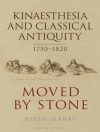In ‘Matisse Picasso and Gertrude Stein, ‘ Gertrude Stein intricately weaves together the lives and works of two of the foremost figures in modern art, Henri Matisse and Pablo Picasso. The book juxtaposes their artistic philosophies and vibrant personalities, offering a compelling exploration of the avant-garde movement during the early 20th century. Stein’s unique literary style—characterized by rhythmic prose and a penchant for repetition—immerse readers in a world where visual art and literature harmoniously intersect, capturing the essence of creativity that defined an era. The text serves not only as a study of artistic genius but also as a snapshot of the tumultuous cultural landscape in which these artists thrived, enriching our understanding of their lasting impact on art history. Gertrude Stein, a key figure in the Parisian artistic community, was deeply embedded in the context of modernism. Her relationships with avant-garde artists and her role as a patron and commentator allowed her to experience first-hand the emotional and intellectual undercurrents that drove Matisse and Picasso. Stein’s own revolutionary approach to literature, marked by experimentation and an unorthodox structure, reflects the very essence of the groundbreaking artistry she admired. This book is a must-read for art and literature enthusiasts alike. Stein’s insightful analysis and evocative prose not only from an artistic lens but also illuminate the personal dynamics that fueled the creative process of two monumental figures. Readers seeking to deepen their understanding of modernism and its key players will find this work both enlightening and engaging.
Sobre el autor
Gertrude Stein (1874–1946) was a towering figure in the realm of early 20th-century literature, an innovative author whose contributions left an indelible mark on modernist prose. Born in Pennsylvania and raised in Oakland, California, Stein attended Radcliffe College and later studied at Johns Hopkins Medical School, although she did not graduate. Stein’s literary style is renowned for its experimental nature, especially her use of stream-of-consciousness and repetition to capture the flow of thought and the essence of existence. She moved to Paris in 1903, where she became a central figure in the avant-garde art scene, famously hosting a salon that was frequented by illustrious artists and writers like Picasso, Hemingway, and Fitzgerald. One of her notable works that captures her musings on art and literature is ‘Matisse Picasso and Gertrude Stein’, a collection that encompasses her innovative literary technique and positions her as both a witness to and participant in the unfolding modernist movement. Stein’s writing is not simply narrative; it is a mosaic that reflects her intellectual pursuits and her engagement with contemporaneous artistic developments. A lesbian, Stein’s lifelong relationship with Alice B. Toklas, notably chronicled in ‘The Autobiography of Alice B. Toklas’ (1933), also offers insights into the bohemian lifestyle of Paris during the early 20th century. Stein’s literature and her unorthodox approach to syntax and grammar have inspired and challenged readers and writers alike, ensuring her legacy as a pioneering figure in modernist literature.












